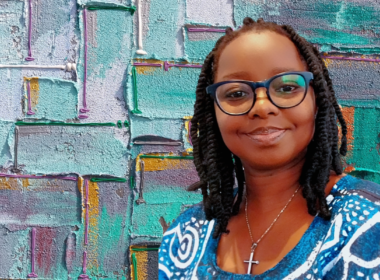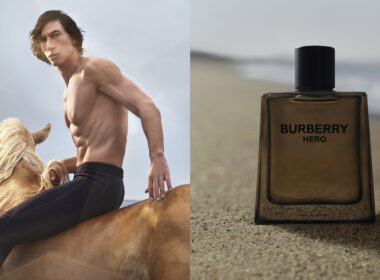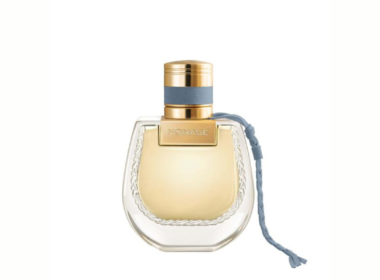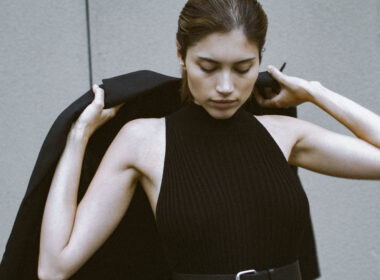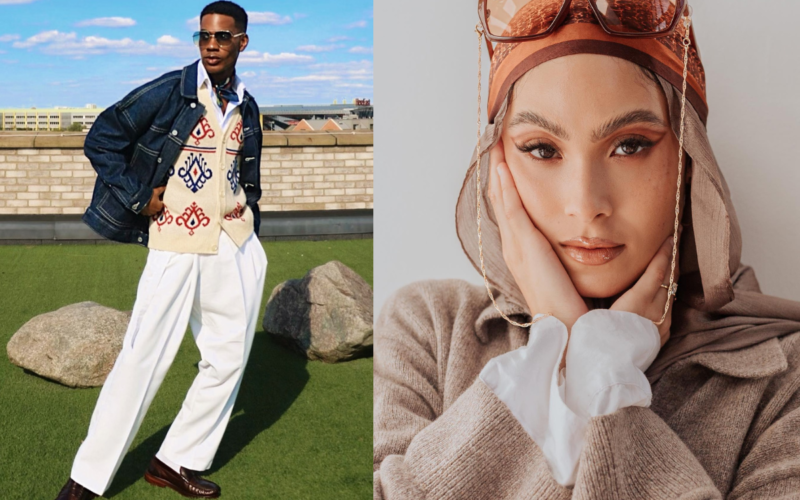Christine Ruckendorfer’s vision for Afriques went well beyond simply staging another festival. She wanted to create something fresh, something that blended art and entertainment in a way that Vienna had never seen before. Now that it’s wrapped up, Christine Ruckendorfer reflects on what was truly a labour of love. Months of planning, from curating artists like Innocent Masuku and Boris Anje to bridging the gap between Vienna’s local scene and the rich African diaspora, culminated in a festival that wasn’t just about performances but connection.
Afriques challenged the notion that art and entertainment must exist in separate worlds, bringing them together in a way that felt fresh and meaningful for everyone involved. As Christine puts it, the festival filled a gap in Vienna—one that will resonate with the community long after the last notes of Bal D’Afrique have faded. Even now, people still ask her, “Where’s my fufu? Where’s my jollof rice?”

FAB: First of all, congratulations on wrapping up such a vibrant festival! How does it feel now that Afriques has come to an end?
Christine Ruckendorfer: On the last evening of the festival, Bal D’Afrique, for the first time in months, I finally felt happiness, satisfaction, and relief. Since we started preparations in January, I hadn’t allowed myself to feel relaxed until that moment. Everything I had hoped for came to fruition on that final day.
Now, even though Afriques is over, my mind is already thinking about the next project. Every day, someone sends me photos or videos, and I can’t help but reminisce. The aftermath of Afriques has been very joyful, filled with positive feedback from the Black community, the artists, and local Viennese residents. People still come up to me daily, asking, “Where’s my fufu? Where’s my jollof rice?” When do you do that festival again?
I’m still working on perfecting and thinking about new levels of showcasing all these varieties. It’s been a wonderful experience. I think this event filled a gap in Vienna. It was something fresh and innovative, combining art and entertainment in a way that’s often missing here. In Europe, entertainment often isn’t seen as intellectual enough, while art is reserved for the intellectual elite. I wanted to break that barrier, to bring these two worlds together. To me, music is just as meaningful as contemporary art, design, and creative food, seen as a story of migration. Everything creative has a purpose and a mission.
The Vision Behind Afriques Festival Vienna
FAB: Looking back, were there any standout moments during the festival? Was there a particular performance, artwork, or experience that resonated with you personally?
Christine Ruckendorfer: Absolutely. There were countless moments that stood out—almost every day brought a new highlight. Each day offered inspiration, whether it was through a performance, an artwork, or a meaningful connection with someone. I felt like I was constantly hugging and engaging with people who truly understood why they were doing what they were doing. It wasn’t just about their performances or art—it was about a deeper understanding of their purpose of bringing a message to the public.
It felt like a beautiful exchange, not just an encounter. The festival became a vibrant interaction between people, their art, and my space. I felt like a transmitter, facilitating these connections. The real effort, though, happened already before the festival—the website creation, content research, and the heavy lifting behind the scenes. My primary contribution was the research, which spanned across Kenya, Cameroon, and beyond.
Bringing people like Innocent Masuku, Boris Anje, Louise Deininger, and many more to participate in this new format was a great contribution and was the motivation to fulfil a dream!
At heart, I’m a project developer—it’s in my nature to create. I had this vision, and I worked to bring all the pieces together to make it the best it could be. The reason the festival was such a success is because of that blend of experience, passion for Africa, and genuine love for African people. I wasn’t just talking about making something happen—I was doing it. And in the end, I believe the festival will stay in people’s hearts and minds for a long time.
Recommended For You
Everything we know about AFRIQUES Festival at Aux Gazelles
North African Hammam Rituals: A Guide to the Ultimate Spa Experience (Pt. 1)
From the Arab World to Your Home: How to Replicate the Perfect Hammam Experience (Pt. 2)
FAB: After such a successful month, is there anything you would do differently next time?
Christine Ruckendorfer: That’s an interesting question. I’m not sure yet. I can’t say for certain what will change. I do know that I’ll be collaborating again with the African community and artists. But whether it will be the same format or something different, I haven’t decided yet. I learnt that aux gazelles works very well for presenting this kind of fair/festival. So yes, I’d do some things differently, definitely. You always have to improve.
It was quite a long, and I’d say, intense process—not exactly stressful, but very challenging. Next time, I would have a bigger team. I handled most of the preparations and execution alone, which was tough. I would need a stronger team and better planning. The workload was overwhelming, and August is a challenging month to host an event like this in Vienna. But I’d absolutely continue showcasing African arts, African artists, and African music. There’s so much power and creativity in these communities. People have already started calling me about doing more next year.

FAB: People really want to see what happens next?
Christine Ruckendorfer: Yes, absolutely. But it’s important to emphasise that I’m not part of the traditional art scene, nor am I a gallerist. I also didn’t do everything alone—I had support. Two galleries in particular helped me a lot by lending artworks. I selected about 12 pieces from them, which were already in Vienna, while others came directly from Africa.
Louise Deininger did the installation for the staircase. She covered the stairs with Kenyan fabric called kanga. It stretched from the top of the staircase to the bottom, around 80 pieces. The idea behind this installation, titled Generation Z, was to create a connection between the Aux Gazelles and the Platz der Menschenrechte. It wasn’t just a decoration but an installation meant to make a public statement, linking art within the building to the public space outside.
FAB: Wow, so it was up for an entire month?
Christine Ruckendorfer: Yes, a whole month. The Aux Gazelles is located in the heart of Vienna’s main museum district, surrounded by art institutions like the University for Contemporary Art and a lot of museums and galleries. We wanted to connect this area to our exhibition through Louise’s installation. The stairs became part of the scene, bringing public attention to our African contemporary art exhibition.
Christine Ruckendorfer on Starting Aux Gazelles
FAB: Awesome. I think I’ll use that as a segue to the next part of our conversation, especially since we’ve started talking about Aux Gazelles. You’ve mentioned in previous interviews that the early days were tough, particularly as you were breaking into a male-dominated space. How did you manage to stay strong and push through? Was there ever a moment when you thought, “Maybe this is too much,” or were you all in from the start?
Christine Ruckendorfer: Sure. When I opened Aux Gazelles in 2002, it was designed as an African-inspired space, drawing from the essence of Marrakech, Morocco, and North Africa. The journey was tough—no doubt about it.
We’re talking about managing 2,000 square meters. For a woman, it was something extraordinary, and I think it still is. In the first 10 years, I worked with about 90% men. Eventually, I shifted the team, and it became 60% women. Now, we have an equal balance, half men and half women. But as a woman, to run this kind of place, you need thick skin, and frankly, you need guts.
It requires a lot of energy, determination, and love for what you do. That’s been my driving force—the will to keep creating something better and more innovative. I’m always pushing for what’s next, driven by my curiosity. When we started the Afrique Festival, I had no idea how it would turn out because it was completely new.
From the beginning, the African spirit was at the heart of what I created. It wasn’t about jumping on a trend or making something “African” just for the sake of it. It’s been a long journey, and I couldn’t have done it any earlier because I needed time to gain experience, travel, and truly understand what I was doing. Now, I can confidently say I know what I’m doing and what I’m capable of. It’s not about pride, but I’m genuinely happy with what I’ve achieved.
We’re all proud of what we’ve built. The letters and positive feedback I’ve received are invaluable, and they mean far more than any monetary gain. This project wasn’t driven by profit at all. It was purely spiritual—born from a deep, loving interest in Africa and its people.
For me, it’s about giving people a voice, especially in a country like ours where racism still exists. I’ve met so many incredible, powerful individuals I had never encountered before in Vienna. It was heartwarming. There were several moments during the festival when I got teary-eyed because I was so overwhelmed with emotion. We had amazing artists, and the music was incredible, especially from East Africa, which was new to me.
The concert was breathtaking. I met people, like musicians I had heard of but never knew just how talented they were. We also had an opera singer from Durban—Innocent Masuku gave me all the emotions I did not expect!
In the end, I’m just truly happy we pulled it off.

FAB: This is a question about the hammam, combining two thoughts. First, what’s your connection to Morocco? And second, why did you choose to create a hammam? It could have been any other African culture—why the hammam specifically?
Christine Ruckendorfer: Funny story. When I first saw the space, it had been empty for 100 years. I didn’t originally plan to start this project. I was a real estate developer focused on renovating old industrial buildings in Vienna and transforming them into livable spaces. But when they showed me this particular place, I fell in love, also with the staircase in front, the roundabout, and the terrace—it felt great!
As soon as I walked in, it felt like I had seen it before. I wasn’t sure the hammam would be Moroccan at first, but I knew I wanted to create one. It all began when I was in my twenties and visited the Beverly Hot Springs in Los Angeles. I was fascinated by their bathing rituals. They treat you like a fish, turning you, scrubbing you, and then—bam!—you’re done. That memory stuck with me.
I wanted to create a hammam and combine it with a nightclub—a place where people could spend an entire day. That was the initial concept—a hotel without rooms! However, two years before opening, we hit a major financial hurdle. I couldn’t find funding, and everything seemed to stall.
Then, I read an article in a newspaper, and shortly after, I went to Marrakech. When I arrived there, everything clicked. I realised I didn’t need an architect anymore—I could design it myself. That’s when the Moroccan influence came in, along with the connection to North Africa. Suddenly, a lot of African elements and people naturally gravitated toward the project.
From day one, the hammam has been an essential part of the space. It’s still the only hammam in Vienna because there aren’t many places like this here. A hammam is incredibly special; it’s unique. You can’t compare it to typical spas or even gastronomy. The combination of a hammam, spa, and nightclub is something you won’t find anywhere else—not just in Vienna, but anywhere in the world.
FAB: As a woman running such a big operation for so long, you must have learnt a lot along the way. What’s the best advice you’d give to another woman thinking about opening her own restaurant or taking on a big project like yours?
Christine Ruckendorfer: You know what? For me, I’ve always found it difficult to make distinctions between men and women in this context. I never thought in those terms because I was raised like a boy. My father brought me up to be responsible, as I was the firstborn. He gave me this advice: Realise what your thoughts teach you. Essentially, if you want to do something, just do it. He gave me opportunities and raised me to be independent. I have a daughter, and my advice to any woman would be to believe in yourself and pursue what you want. Just be careful not to overextend yourself.
I remember an interview I gave about 20 years ago where I said something that’s stuck with me: a woman should not work more than nine months a year. Like a pregnancy! She should take three months off to take care of herself! . I had reached that conclusion back then because I was working so hard, and I would always take two or three months off each year to avoid falling into the “washing machine,” as I called it—the never-ending flow of work. However,I believe in giving your best when you’re working, but you must also maintain your personal life.
I had this privilege some years, then came aux Gazelles…
It’s difficult for me to compare myself with others because everyone—whether woman or man—has their own life, family, and capacity. This project of mine is so unique that I wouldn’t recommend anyone else try to replicate it. It’s a lot of work, and this was my special piece. Everyone should do what they’re meant to do. It’s hard to give general advice, but I think what’s most important is respect—respect for your staff, your guests, and even the authorities.
As a bosslady , you have to be willing to do every job, even the dirtiest ones. I’ve cleaned floors and toilets here, and I’ve peeled people in the hammam. From the very beginning, I did every task myself because I love doing, working, and creating!
If I were to tell someone they need to work 60-70 hours a week, they’d probably think I was crazy. But working with your hands, feet, and brain in this industry isn’t for everyone. It’s hard work, and nothing came easy for me. In the field of hospitality and gastronomy, you have to be present all the time. It’s not something you can easily delegate to others. Maybe some people are better at delegating than I am, but I prefer to do things myself.
Aside (FAB note): Even though Christina was organising the event, she was also in the kitchen cooking.
Christine Ruckendorfer: Yes, I was cooking all the African food myself. I didn’t have a teacher—Harriett tried once, but we had the wrong meat. But I kept trying, using the internet, Google, and my own taste. Every day, I would ask Africans how they liked my Jollof rice, and when they told me it was the best they’d ever had, I was thrilled! I think if you have a good taste for food and an interest in it, you can figure it out. Actually, food is my second love; it’s very important to me to feed people and give them good food. I only use organic ingredients—organic meat, organic vegetables—and everything is fresh. We also had a great deal on the menu. I should send it to you, Harry. Each of the 20 African dishes was just €9.50, which is half of what I usually charge, but I wanted to give people the opportunity to try something new. That was the whole idea—a very nice gesture.
FAB: You’re a legend in the industry. What do you think are the most pressing challenges facing the hospitality sector today? Specifically in Vienna. And how can leaders and entrepreneurs work together to address them?
Christine Ruckendorfer: First and foremost, we need stronger collaboration. There isn’t much communication between the gastronomy sector and the hotel industry, and that needs to change. One significant shift that happened after the pandemic was in the à la carte business. Just before COVID hit, there was a complete ban on smoking inside restaurants, and about four months later, we were all in lockdown. That combination—COVID and the smoking ban—changed people’s habits. Many got used to staying at home and no longer dine out as frequently. Now, I see new delivery services and quick food spots popping up everywhere—poke bowls, burgers, fast food. People pick up their meals and leave. Even when diners sit down in restaurants, within five minutes, they’re both on their phones. Communication has become weak.
I’m fortunate to have a large space here, where we can host big events like corporate functions, art shows, and fairs. Without those, it would be incredibly challenging, especially since everything is becoming so expensive. People are cutting back on spending. If you can get a full lunch for €5.50 at the supermarket, you’ll think twice about spending €25 at a restaurant. These are difficult times for everyone.
FAB: Do you have any ideas or solutions to help tackle these challenges?
Christine Ruckendorfer: Not really, in terms of big changes. I won’t change much myself, but I do work with young people—event planners, DJs—on new ideas for events. I handle my corporate events, but as for my future plans… Well, that’s a secret. Never miss a beat in fashion, arts, beauty, and lifestyle, follow FAB L’Style Magazine.
FAB: (Laughs) Okay, we’ll keep it a secret.
Christine Ruckendorfer: I’m not going to share my plans just yet. But I’m always working on new possibilities, mainly to improve things for myself. At this point in my life, I’m focused on what’s good for me, not just for others. For 20 years, my motto with Aux Gazelles has been to give people something beautiful—always improving, updating the furniture, refreshing the colours, and creating a welcoming atmosphere. When I’m here, everyone is welcome. Of course, I can get angry sometimes, but I try to hide that. I’m very emotional, and honestly, for a project of this size, you need tough management. It requires strong leadership. But “Afrique” is my legacy. I don’t know what will happen afterward, but it has been something special.
FAB: You’ve already answered part of my next question, but I’ll ask anyway: What do you hope future generations will take away from your story?
Christine Ruckendorfer: Believe in yourself, stay human, stay alert, and always remain interested in people. Be kind and stay engaged with the people around you. It’s essential to maintain communication and never let others drain your energy. Keep away from people who only take from you without giving anything back, especially those who tell you that you don’t need to work hard to earn money. Yes, you do. You have to show up and put in the effort.
It’s not easy for the younger generation today. They are constantly surrounded by bad news, and I see my role as keeping them positive. They need to find something they truly love and pursue that passion instead of focusing solely on how to become rich.











Top African Fashion Influencers You Need to Follow for Style Inspiration
